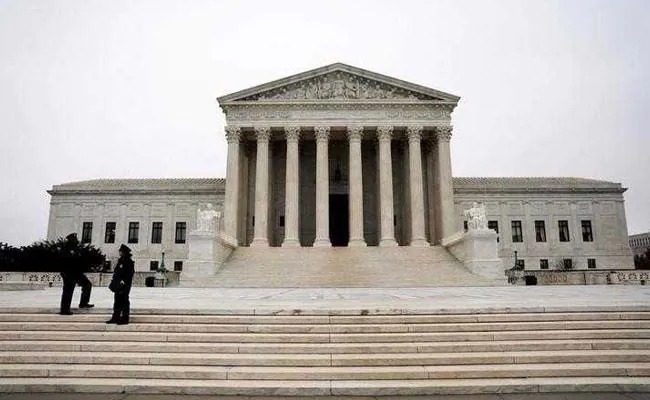
| Translate This News In |
|---|
This week, the US Supreme Court will consider a 25-year-old legislation that shields tech companies from legal action and prosecution for user-posted content, raising the possibility that the rules governing the internet will no longer be upheld.
Section 230, which was passed when Mark Zuckerberg, the founder of Facebook, was just 11 years old and Google hadn’t even been invented for two years, is regarded by ardent supporters as a basic rule of the internet.
Section 230 of the 1996 Communication Decency Act, an anti-pornography legislation, helped establish the ground rules for the internet, which was still developing as a level playing field for all users.
The goal was to shield the then-emerging internet industry from domino lawsuits, enable its growth, and incentivize tech firms to control their content.
The restrictions on sexual content, which were part of the bill supported by the then-president Bill Clinton and subsequently overturned by the Supreme Court in a landmark case, received the majority of the attention at the time.
However, Section 230 was added to the law, which stated that “no provider or user of an interactive computer service shall be regarded as the publisher” or have ownership of content that was created by a third party.
The majority of people believe that this immunity is the regulatory change that will ultimately open the door for Google search and plant the seeds of the social media revolution.
Under the security of Section 230, social media platforms like Facebook, Instagram, Twitter, and YouTube were able to host global conversations without ever running the risk of being sued by someone who took offense at a tweet or a contentious video.
Wikipedia and classified ad websites like Craigslist, whose success would also undermine conventional media, are also protected by the law.
However, those who oppose the legislation would like to see platforms sued for drug deals, online stalking, and violent threats that occur on their websites.
Section 230 is not free expression absolutism, as Elon Musk, the multibillionaire owner of Twitter, has endorsed.
In order to maintain their sizable audiences, major advertisers, and avoid increased government scrutiny, large tech firms employ thousands of people to moderate their platforms. This is because they are hurt by scandals.
The work is never flawless, though, and businesses still struggle to monitor the posts from billions of users.
In the nearly 30 years that it has been in effect, US courts have consistently supported Section 230, but the law’s ardent supporters are concerned about the two highly emotional cases that will be brought before the Supreme Court, both of which involve terrorism.
Terrorism’s “material assistance”
The judges will hear arguments presented by the families of those killed in jihadist attacks who claim that Twitter and Google “aided” the attackers, the Islamic State group, by disseminating their propaganda in two sessions on Tuesday and Wednesday.
The family of Nohemi Gonzalez’s attorneys argued in their legal brief to the court that by recommending “ISIS videos to users, Google assists ISIS in spreading its message and thereby gives material support to ISIS.”
Gonzalez, a 23-year-old American, was murdered when ISIS terrorists opened fire into a patio crowd at the La Belle Equipe restaurant in Paris.
Section 230 should be reexamined, according to twenty-eight state administrations.
In a brief, several of those states, including Alabama and California, claimed that what was originally intended to be a limited shield from defamation liability had expanded into an all-purpose license to take advantage of and benefit from harmful third-party behavior.
A review of Section 230 and the most recent arguments put forth are strongly opposed by the big tech sector as well as a variety of other actors.
According to Matt Schruers, president of the Computer and Communications Industry Association, “if this case changes federal law, companies are likely to react in one of two ways to protect themselves legally.”
Businesses that could afford to do so would excessively moderate everything, he claimed, while others would just give up and not moderate anything.
In the other case scheduled for hearing on Wednesday, the family of Nawras Alassaf, a Jordanian killed in an attack by the IS group in Turkey, claims that Twitter did not do enough to weed out extremist material.
By June 30, the judge is supposed to have decided everything.

















